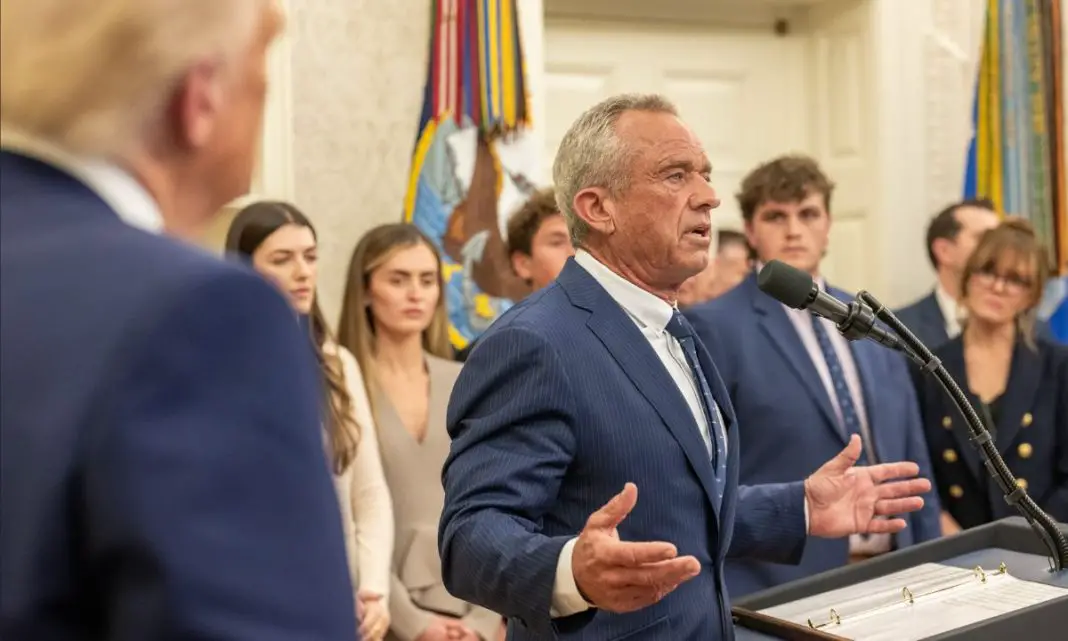In an era where public confidence in medical institutions has wavered, Americans are demanding clarity and integrity from government-led health initiatives, particularly when it comes to vaccines. Many feel burned by conflicting messages during past health crises, like COVID-19, leaving them skeptical about the safety and necessity of vaccinations.
Parents, especially, want assurances that the shots recommended for their children are rigorously tested and free from hidden agendas. This growing call for transparency has put pressure on federal agencies to prove their recommendations are grounded in unbiased science, not swayed by politics or profit.
Vaccines, praised as one of modern medicine’s greatest achievements, have eradicated diseases like smallpox and nearly eliminated polio. Yet, for some, the rapid development and rollout of newer vaccines, coupled with perceived lapses in oversight, have fueled doubts.
Americans aren’t anti-science; they’re anti-ambiguity. They want to know that the institutions tasked with protecting their health are prioritizing their well-being over bureaucratic or corporate interests. This demand for accountability has prompted major changes at the Department of Health and Human Services (HHS), where new leadership is shaking up the status quo.
Rebuilding Trust in Vaccine Safety: A New Era for HHS
Enter HHS Secretary Robert F. Kennedy Jr., who is spearheading a dramatic overhaul of the nation’s vaccine advisory system. On Monday, Kennedy announced a complete reset of the Advisory Committee for Immunization Practices (ACIP), the 17-member panel responsible for guiding vaccine safety and efficacy recommendations. In a move he says is critical to restoring faith in public health, Kennedy is replacing the entire committee, citing entrenched conflicts of interest and a lack of transparency that have eroded its credibility.
“Today, we are taking a bold step in restoring public trust by totally reconstituting the Advisory Committee for Immunization Practices (ACIP),” Kennedy wrote in an op-ed for the Wall Street Journal. “We are retiring the 17 current members of the committee, some of whom were last-minute appointees of the Biden administration.” He argued that without this clean slate, the Trump administration would be unable to appoint a majority of new members until 2028, delaying urgently needed reforms.
Today, we are taking a bold step in restoring public trust by totally reconstituting the Advisory Committee for Immunization Practices (ACIP). A clean sweep is necessary to reestablish public confidence in vaccine science.
The entire world once looked to American health… pic.twitter.com/hTo7xV4Pke
— Secretary Kennedy (@SecKennedy) June 9, 2025
Kennedy’s critique of ACIP is sharp. He claims the panel has functioned as little more than a rubber stamp, approving every vaccine it’s been asked to review, even those later pulled from the market due to safety concerns. “It has failed to scrutinize vaccine products given to babies and pregnant women,” he wrote, pointing to a troubling track record. He also highlighted the secrecy surrounding the groups that advise ACIP, noting that their closed-door meetings violate the “legal and ethical principle of transparency crucial to maintaining public trust.”
The problems don’t end there. Kennedy referenced a 2000 investigation that exposed lax enforcement of conflict-of-interest rules within ACIP. “Committee members regularly participated in deliberations and advocated products in which they had a financial stake,” he wrote, adding that the Centers for Disease Control and Prevention (CDC), which oversees ACIP’s recommendations, routinely issued conflict-of-interest waivers to every member. A 2009 HHS inspector general report further revealed that 97% of committee members’ conflict-of-interest forms contained omissions, with the CDC taking “no significant action” to address the issue.
Kennedy’s vision is clear: “The public must know that unbiased science guides the recommendations from our health agencies,” he said. “This will ensure the American people receive the safest vaccines possible.” His actions point to a push to realign HHS with this principle.
Under his leadership, the department is investing $500 million in “Generation Gold Standard,” a project aimed at developing universal vaccines for multiple viruses. Meanwhile, the CDC is diving into research on the rising rates of autism, including exploring potential links to vaccinations—a topic long debated.
Last month, Kennedy made waves by announcing the CDC’s decision to rescind its recommendation for COVID vaccines for healthy children and pregnant women. “I couldn’t be more pleased to announce that, as of today, the COVID vaccine for healthy children and healthy pregnant women has been removed from the CDC recommended immunization schedule,” he said. The move, seen by some as a response to public skepticism about the vaccine’s necessity for low-risk groups, shows Kennedy’s willingness to challenge entrenched policies.
These changes are a direct response to the American people who feel unheard. By dismantling a system riddled with conflicts, Kennedy is betting that a transparent, science-driven approach will rebuild trust.
Do you approve of these changes to the CDC by RFK Jr.? Let us know why or why not by posting your thoughts in the comments below!

